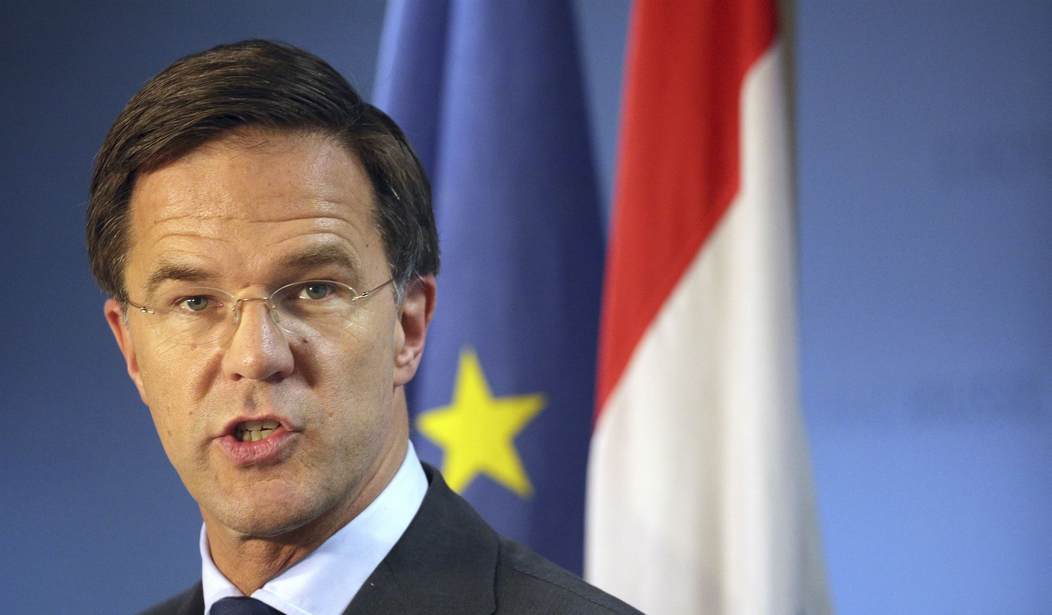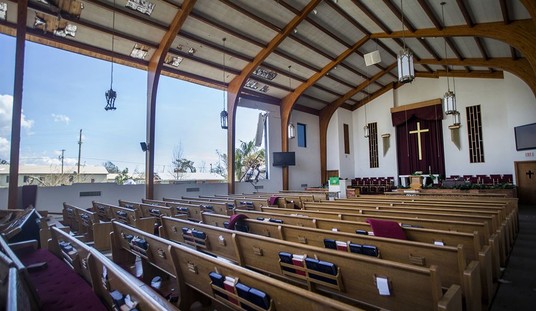The Netherlands is government by a parliamentary system and over the past year and a half the group in power was a coalition made up of four parties. Today that coalition collapsed over a disagreement on immigration policy. Specifically, Prime Minister Mark Rutte belongs to the conservative party and was trying to secure an agreement that would limit the number of asylum seekers coming into the country. But the smallest party which was part of the coalition refused to go along with his plan.
Rutte has led the Netherlands since October 2010 in four different coalitions, making him the longest-serving prime minister in Dutch history.
His VVD wanted to create a two-tier system for asylum seekers, with people under threat of persecution granted more rights than those fleeing war zones. It also said the number of family members who could join refugees in the second category should be capped at 200 per year.
But the party ran into opposition on the last point from the ChristenUnie, the smallest member of the four-party coalition, which said it was unwilling to break up families.
What’s driving this effort to change the rules is a sharp uptick in asylum seekers:
Asylum applications in the Netherlands jumped by over a third last year to over 47,000, and government figures said earlier this year that they expect some 70,000 applications in 2023…
“The decision was very difficult for us”, Mr Rutte told journalists as he announced his cabinet’s resignation. The differences in views between the coalition partners were “irreconcilable”, he added…
“The four parties decided that they cannot reach an agreement on migration. Therefore they decided to end this government,” the Christian Union’s spokesman Tim Kuijsten said.
The NY Times has more on the numbers motivating this. It’s not just asylum seekers from outside the EU who are moving to the Netherlands, it’s also a much greater number of people moving there from eastern Europe.
Last year, 21,505 people from outside the European Union sought asylum in the Netherlands, according to the Dutch government. More than 250,000 people with “a European background” moved to the Netherlands in 2022, the office said, saying they were mostly from countries in the former Soviet Union.
Mr. Rutte had supported European Union efforts to limit migration, visiting Tunisia last month with the hard-right prime minister of Italy, Giorgia Meloni, and a top E.U. leader, Ursula Von der Leyen. In a joint statement, the leaders said the European Union would provide 100 million euros, or about $109 million, to Tunisia for “border management” and search-and-rescue and anti-smuggling efforts.
The most recent elections in the country were held earlier this year and the surprise winner was a populist party which opposed some of the governing coalition’s environmental policies:
The success of the Farmer-Citizen Movement (BBB) in Wednesday’s vote, which will determine the makeup of the senate, casts doubt over the government’s ability to pass key legislation, including its plans to slash nitrogen emissions.
“The Netherlands has clearly shown we’re fed up with these policies,” BBB’s founder, Caroline van der Plas, told the public broadcaster NOS. “It’s not just about nitrogen, it’s about citizens who are not seen, not heard, not taken seriously.”…
The government aims to buy farmers out and reduce livestock numbers by up to a third to help halve nitrogen emissions by 2030. Soil and water nitrogen levels exceed EU limits in the Netherlands, the world’s second-biggest agricultural exporter.
The same problem has also halted construction projects despite a major housing crisis, with environmental groups winning court cases ordering the government to limit emissions and preserve nature before new building permits can be granted.
The expectation is that there will be new elections this November. From there some new coalition government will need to be formed. Whether that government is more or less favorable to curbs on asylum seekers remains to be seen. Perhaps those concerns will be replaced by other priorities if the BBB does well in the new elections.








Join the conversation as a VIP Member